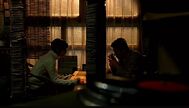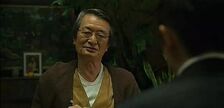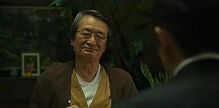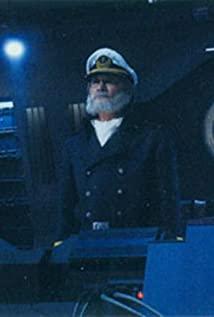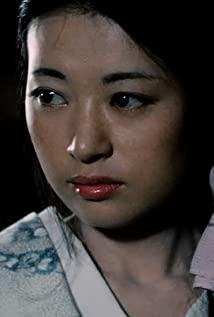The storyline of the film, and the audience who likes the movie, have probably learned one or two from related reports such as newspapers and networks: a cellist was unemployed, and he returned to his hometown to become an enchanter. The so-called enrollment teacher, in the words of the director of the enrollment club in the film, is a person who "helps others embark on a stable journey", or to put it bluntly, is a person who washes and puts makeup on the deceased. The profession of an enlightenment teacher will definitely involve the ultimate topic of life such as life and death, and it will definitely not look so easy. But after I actually watched the film, I realized that it was not the case at all. In the words of the famous film critic Mark Schilling: “This is a great movie. The film contains comedy factors and various emotions. The problems it reflects are everyone’s encounters. This is an unusual and interesting way to express it.” Mark Schilling’s evaluation is very pertinent. "The Entire" is not as intimidating as its name, on the contrary, even though death, funeral and remains are inevitably involved in the film. , But the director used a light comedy in many places to show the work of the enchanter and the emotional stories between him and the people around him, making the film warm and touching. However, on the other hand, the film takes "entertainment" as the main storyline, and the emotional tone of the audience has not been destroyed by the comedic elements in the film. This is the most valuable part of the film, which is expressed in a comedy way. Funeral and death, in the end, did not end in laughter, but still let the audience feel the grief of death, and even the resulting deep contemplation of survival. At this point, director Takita Yojiro commented on comedy. The boundary between the tragedy and the emotions of the audience is very accurate. The humor is uncontrollable, and the moving but moving. Expressing death in a comedy way is obviously to prevent people from fearing death, just as the film understands death: "This is a very common thing." The cellist Kobayashi returned to his hometown of Yamagata with his wife after losing his job in Tokyo, "mistakes." "Go astray" became an enchanter. When he went to work on his first day, his president asked him to pretend to be the body of the deceased once, saying that he was asked to be a model and the process of recording the enchantment. He experienced the feeling of being a deceased, because people are afraid of death. After being a deceased once, although the fear of death cannot disappear immediately in his eyes, it at least makes him understand how to face a deceased. The body, this is the professional ethics of being an enchanter. The film shows people the procedures of Japanese incarceration in nuances, and people have to be surprised by the rituals in Japanese culture. Rituals are an important element in Japanese culture. From tea ceremony to flower ceremony to incense ceremony to kendo, everything is in accordance with the ceremony. The procedure requires that there is no difference in the slightest. This may be due to the unique island culture of Japan, which is not conducive to the development of the country. Therefore, to develop in the depths, it is not possible to be broad and broad, but to be precise and deep. The process of entering the funeral also reflects this ritualistic feature. Every step and every action requires excellence, as strict as the steps on the stage. This is not only a respect for the deceased and their families, but also a respect for life. As a cellist, Kobayashi creates beauty for life to be alive, and Kobayashi, as an enchanter, creates beauty for dead life. To express death in a tragic way actually gives us the deepest contemplation to reflect on life and how to live. At the beginning of the film, Kobayashi drove from the fog, accompanied by a monologue in his heart: "It's been almost two months since I returned to the countryside in Yamagata from Tokyo. In retrospect, every day has been unremarkable." Later the film repeated. This paragraph appears, but there is an extra sentence at the end: "Am I really qualified for this job?" It seems that it is just a laid-off worker's confusion about re-employment. In fact, this has surpassed the general thinking of laid-off re-employment. It's the essential thinking about the meaning of existence. In addition, every deceased in the film has a story, both long and short, obvious and hidden. Each story will inspire us, more or less, deeper or shallower. But I think the biggest enlightenment is that when we are alive, people should understand and tolerate each other, otherwise once death comes, we will never have the opportunity to express our feelings to the deceased. Everyone Xiaolin sent away, and their families, has an unspeakable story. With the passing of the dead, all the stories and feelings melted into tears and ashes. This is even more reflected in Xiaolin himself. The relationship between him and his father always makes Xiaolin feel painful, understand or hate it? Everything is changing between thoughts, even life and death. Therefore, I think the most successful part of the film is to deal with the boundary between tragedy and comedy, between death and life, sorrow and joy. The Japanese have a deep research on the psychology of the audience. This is particularly evident in Japanese TV dramas. Many Japanese TV dramas let us cry and laugh to the end. The ups and downs of drama and tragedy will make the audience feel extremely emotional. , Very enjoyable. But the sorrow and joy of "The Enemy" is not like this. Whether it is sorrow or joy, the film is tolerant, touching and not sensational, and humorous is not like scratching you, sad but not hurt, happy but not lewd. It is a true expression of Eastern emotion. In addition, when it comes to the biggest theme in the film, the understanding and perception of life and death, the film is more of an Eastern style of enlightenment to arouse the audience's thinking, rather than a preaching preaching. Kobayashi, who was so stubborn about his work as an enlightenment teacher, saw fish in the river one day on the bridge and swam desperately upstream. However, a few dead fish floated from the upper reaches. Kobayashi was very moved. At this time, one of his friends happened to be passing by the bridge, so he stopped to watch the fish with him. Kobayashi said: "It's really sad, working hard for death, you will die all the time, you can do it not so hard." His friend said: "It's the law of nature, they are born like this." Seeing this, I suddenly remembered the famous Haoliang debate between Zhuangzi and Huizi.
View more about Departures reviews



